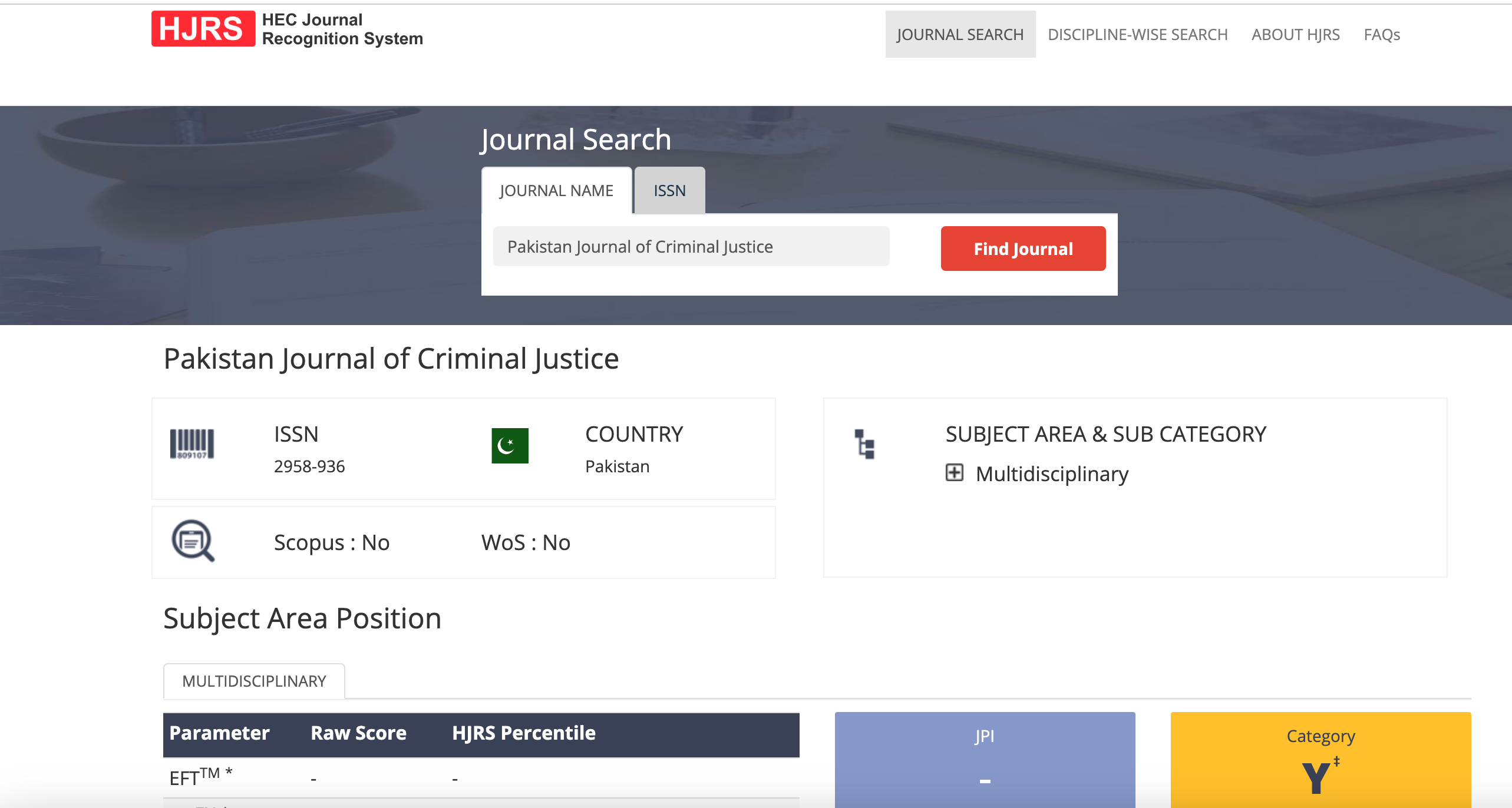Analysis of Extremism and Terrorism: A Study from Pakistan’s Perspective
DOI:
https://doi.org/10.62585/pjcj.v4i1.66Keywords:
Madrassa administrators, Constitution of Pakistan, terrorism, ExtremismAbstract
Due to its complex dynamics, which include a variety of targets and motivations, the use of cutting-edge weapons, the occupation of larger territories, the destruction of essential infrastructure, and the claimed deaths of a large number of people, terrorism in Pakistan has attracted significant local and international attention. This study investigated terrorism from Pakistan's viewpoint at this important historical turning point. It considered the complex interactions between various factors that have contributed to the tremendous hardship brought on by terrorism in the country. A qualitative research approach was applied in this study. The primary goal of the study was to conduct a critical analysis of the Taliban and determine what drives them to incite fear throughout the nation under various circumstances. Critical analysis was performed by asking people about multiple situations and examining their responses. According to the findings, the Taliban abused Islamic morality and stoked hatred toward it. Pakistan needs to do more to support radicalized citizens and prisoners of war by offering incentives and a conducive environment. As a result, a range of reform-related worries and recommendations are presented from the viewpoints of the authorities, madrassa administrators and instructors, and muftis.
Downloads
Published
How to Cite
Issue
Section
License
Copyright (c) 2024 Dr. Muhammad Imran, Muhammad Arif Saeed, Dr. Rao Qasim Idrees

This work is licensed under a Creative Commons Attribution-NonCommercial 4.0 International License.





